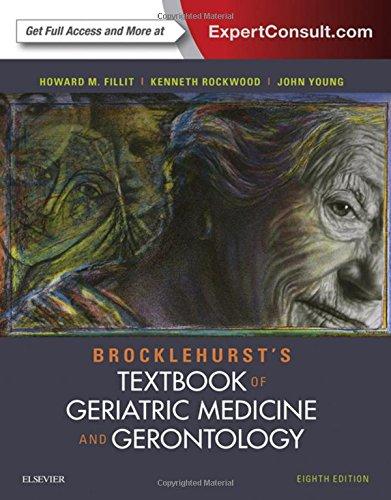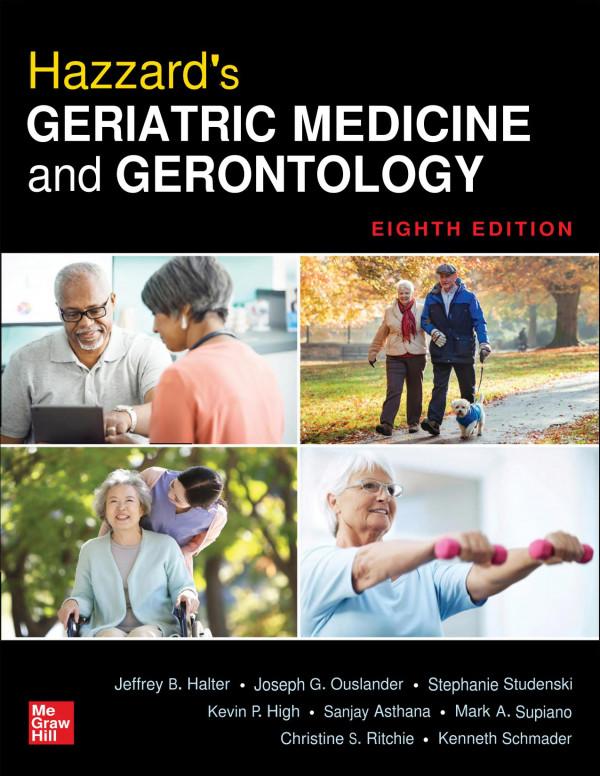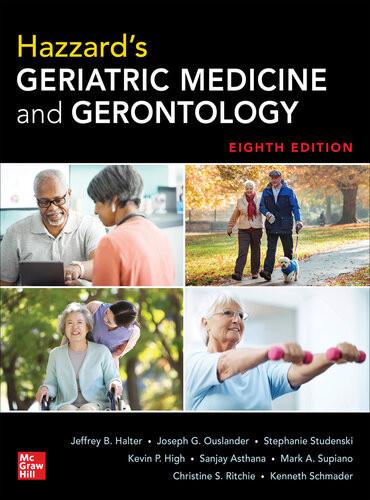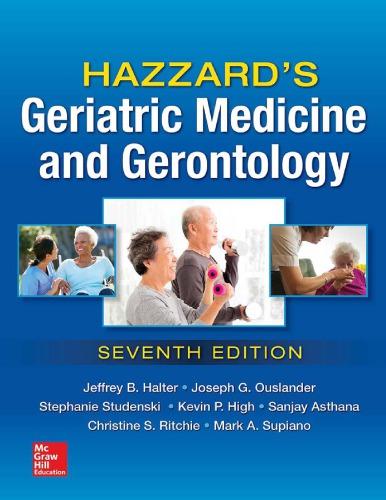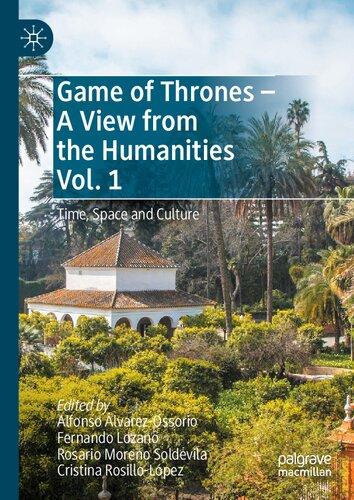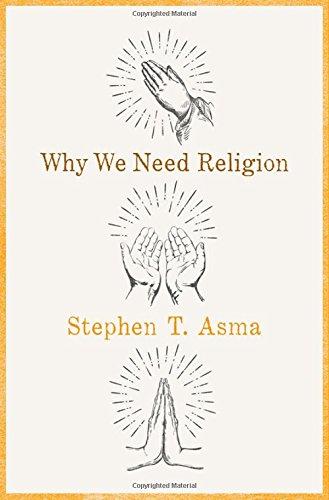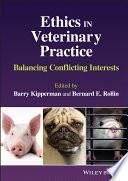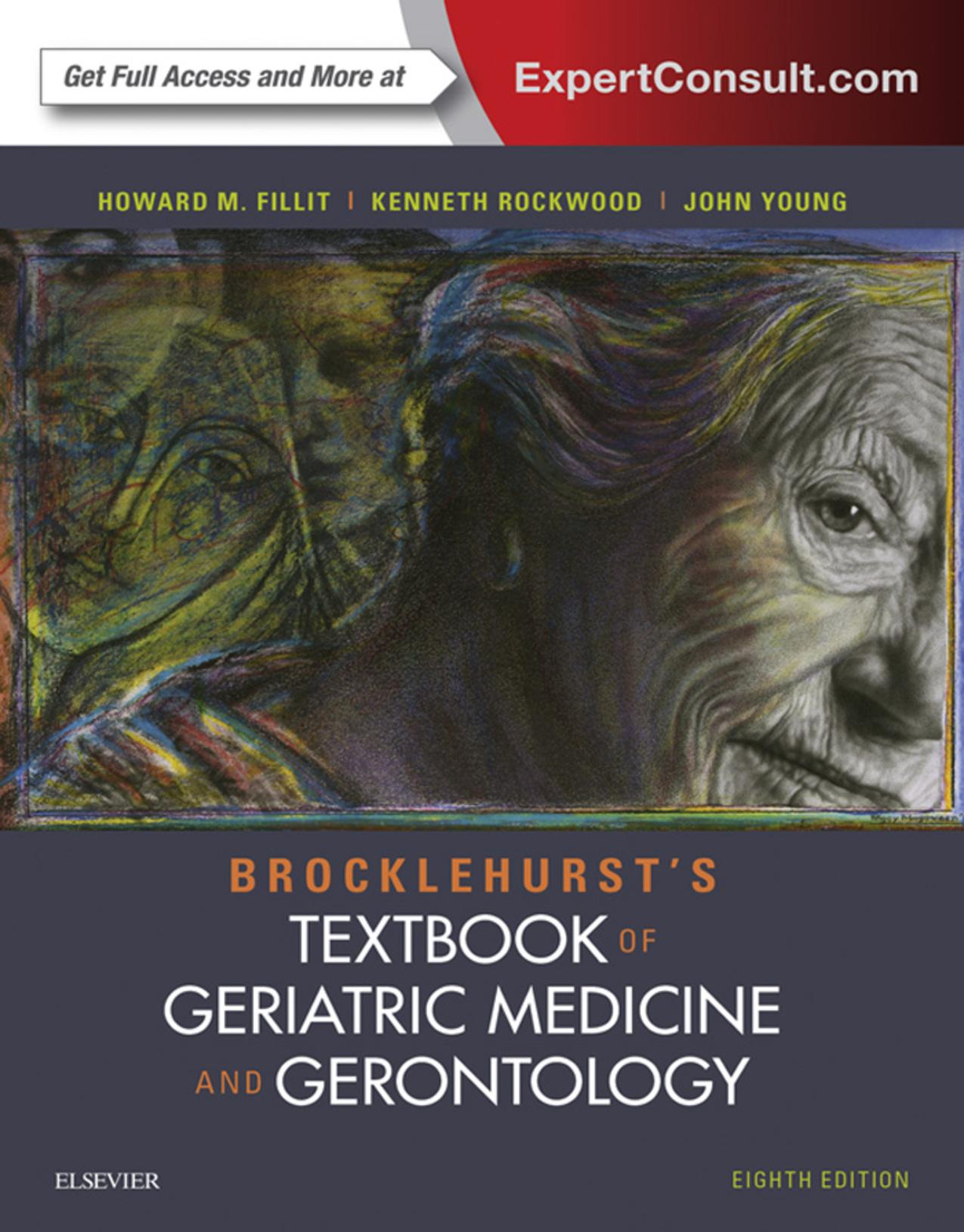Contributors
Ahmed H. Abdelhafiz, MSc, MD, FRCP
Consultant Physician and Honorary
Senior Clinical Lecturer
Department of Elderly Medicine
Rotherham General Hospital
Rotherham, United Kingdom
Tomas Ahern, MB BCh, BAO
Clinical Fellow
Andrology Research Unit
Centre for Endocrinology and Diabetes University of Manchester; Clinical Fellow
Department of Endocrinology
Manchester Royal Infirmary Manchester, United Kingdom
Lena Alsabban, BDS
Assistant Professor
Department of Oral & Maxillofacial Surgery
New York University
New York, New York
Melissa K. Andrew, MD, PhD, MSc(PH)
Associate Professor Department of Medicine (Geriatrics) Dalhousie University
Halifax, Nova Scotia, Canada
June Andrews, FRCN, MA (Glasgow), MA Hons (Nottingham), RMN, RGN Director, Dementia Services Development Centre
School of Applied Social Science University of Stirling Stirling, United Kingdom
Saqib S. Ansari, MBChB, BSc
Bradford Teaching Hospital Foundation Trust
Department of Gastroenterology/ Hepatology
Bradford, United Kingdom
Wilbert S. Aronow, MD Professor Department of Medicine
New York Medical College
Valhalla, New York
Terry Aspray, MBBS, MD, FRCP, FRCP(E)
Consultant Physician
The Bone Clinic
Freeman Hospital; Hon. Clinical Senior Lecturer
The Medical School
Newcastle University
Newcastle upon Tyne, United Kingdom
Lodovico Balducci, MD
Senior Member
H. Lee Moffitt Cancer Center & Research Institute; Program Leader
Senior Adult Oncology Program
H. Lee Moffitt Cancer Center & Research Institute
Tampa, Florida
Stephen Ball, MBChB
Clinical Research Fellow
Cardiovascular Institute
University of Manchester Manchester, United Kingdom
Jaspreet Banghu, MD
Clinical Research Fellow
Department of Medical Gerontology
Trinity College, Dublin; Mercer’s Institute for Successful Ageing St. James’s Hospital Dublin Dublin, Ireland
Mario Barbagallo, MD, PhD
Department of Internal Medicine and Specialties (DIBIMIS)
University of Palermo Palermo, Italy
Lisa Barrett, MD, PhD
Assistant Professor Department of infectious Diseases
Dalhousie University
Halifax, Nova Scotia, Canada
Antony Bayer, MB BCh, FRCP Professor
Department of Geriatric Medicine
Cardiff University
Cardiff, Wales, United Kingdom; Director, Memory Team
University Hospital Llandough Penarth, Wales, United Kingdom
Ceri Beaton, BMedSci, MSc, FRCS
Department of General Surgery
North Devon NHS Trust
Barnstaple, United Kingdom
David J. Beyda, MD
Department of Gastroenterology
New York Presbyterian Hospital, Queens Flushing, New York
Ravi Bhat, MBBS, DPM, MD, FRANZCP, Cert Adv Tr POA
Associate Professor of Psychiatry
Rural Health Academic Centre
The University of Melbourne; Consultant Old Age Psychiatrist
Divisional Clinical Director
Goulburn Valley Area Mental Health Service
Goulburn Valley Health
Shepparton, Victoria, Australia
Jaspreet Bhangu, MD
Clinical Research Fellow
Department of Medical Gerontology
Trinity College Dublin; Mercer’s Institute for Successful Ageing St. James’s Hospital Dublin Dublin, Ireland
Simon Biggs, BSc, PhD
Professor of Gerontology and Social Policy
School of Social & Political Sciences
University of Melbourne
Victoria, Austrailia
Jennifer Boger, PhD, MASc, BSc
Research Manager
Occupational Science and Occupational Therapy
University of Toronto; Research Associate
Department of Research
Toronto Rehab/The University Health Network
Toronto, Ontario, Canada
Charlotte E. Bolton, BMedSci, BM BS, MD, FRCP
Nottingham Respiratory Research Unit
University of Nottingham Nottingham, United Kingdom
Julie Blaskewicz Boron, MS, PhD
Assistant Professor Department of Gerontology
University of Nebraska Omaha, Nebraska
Lawrence J. Brandt, MD, MACG, AGA-F, FASGE, NYSGEF
Emeritus Chief of Gastroenterology
Montefiore Medical Center; Professor of Medicine and Surgery
Albert Einstein College of Medicine Bronx, New York
Roberta Diaz Brinton, PhD Department of Pharmacology and Pharmaceutical Sciences University of Southern California, School of Pharmacy Pharmaceutical Sciences Center
The Program in Neuroscience University of Southern California Los Angeles, California
Scott E. Brodie, MD, PhD
Professor of Ophthalmology Department of Ophthalmology Icahn School of Medicine at Mount Sinai New York, New York
Jared R. Brosch, MD, MSc
Neurologist Department of Neurology Indiana University Health Indianapolis, Indiana
Gina Browne, PhD, RegN, Hon LLD, FCAHS
Founder and Director Health and Social Service Utilization Research Unit
McMaster University; Professor Department of Nursing; Clinical Epidemiology & Biostatistics McMaster University Hamilton, Canada
Patricia Bruckenthal, PhD, APRN-BC, ANP
Chair, Graduate Studies in Advanced Practice Nursing School of Nursing Stony Brook University Stony Brook, New York
Jeffrey A. Burr, PhD, MA, BA Professor Department of Gerontology University of Massachusetts Boston Boston, Massachusetts
Richard Camicioli, MSc, MD, CM, FRCP(C)
Professor of Medicine (Neurology) Department of Medicine University of Alberta Edmonton, Alberta, Canada
Jill L. Cantelmo, MSc, PhD Vice President
Department of Clinical Services
The Access Group Berkeley Heights, New Jersey
Robert V. Cantu, MD, MS
Associate Professor
Department of Orthopaedic Surgery Dartmouth Hitchcock Medical Center Lebanon, New Hampshire
Margred M. Capel, MBBS, BSc, MRCP, MSc
Consultant in Palliative Medicine
George Thomas Hospice Cardiff, Wales, United Kingdom
Matteo Cesari, MD, PhD Professor
Université de Toulouse III Paul Sabatier; Advisor
Institut du Vieillissement, Gérontopôle Centre Hospitalier Universitaire de Toulouse Toulouse, France
Sean D. Christie, MD, FRCSC
Associate Professor
Department of Surgery (Neurosurgery) Dalhousie University Halifax, Nova Scotia, Canada
Duncan Cole, PhD, MRCP, FRCPath
Clinical Senior Lecturer
Honorary Consultant in Medical Biochemistry and Metabolic Medicine Centre for Medical Education
Cardiff University School of Medicine
Cardiff, Wales, United Kingdom
Philip G. Conaghan, MBBS, PhD, FRACP, FRCP
Professor of Musculoskeletal Medicine
Leeds Institute of Rheumatic and Musculoskeletal Medicine
University of Leeds; Deputy Director
NIHR Leeds Musculoskeletal Biomedical Research Unit
Leeds, United Kingdom
Simon Conroy, MBChB, PhD Department of Geriatric Medicine University Hospitals of Leicester Leicester, United Kingdom
Tara K. Cooper, MRCOG Consultant
Department of Obstetrics and Gynecology St. John’s Hospital Livingston, Scotland, United Kingdom
Richard Cowie, BSc(Hons) MBChB FRCS(Ed), FRCS(Ed) (SN) Consultant Neurosurgeon NHS Hope Hospital, Salford Salford, United Kingdom; The Royal Manchester Children’s Hospital
Manchester, United Kingdom; The Alexandra Hospital Cheadle, United Kingdom
Peter Crome, MD, PhD, DSc, FRCP, FFPM
Honorary Professor
Department of Primary Care and Population Health
University College London London, United Kingdom; Emeritus Professor
Keele University
Keele, United Kingdom
William Cross, B Med Sci, BM BS, FRCS(Urol), PhD
Consultant Urological Surgeon Department of Urology
Leeds Teaching Hospitals NHS Trust Leeds, Great Britain
Carmen-Lucia Curcio, PhD
Department of Gerontology and Geriatrics Program
University of Caldas
Manizales, Caldas, Colombia
Gwyneth A. Davies, MB BCh, MD, FRCP
Clinical Associate Professor College of Medicine
Swansea University
Swansea, United Kingdom
Daniel Davis, MB, PhD
Clinical Research Fellow
MRC Unit for Lifelong Health and Ageing University College, London London, United Kingdom
Jugdeep Kaur Dhesi, BSc MBChB, PhD, FRCP
Ageing and Health
Guy’s and St. Thomas’ NHS Trust London, Great Britain
Sadhna Diwan, MSSA, PhD
Professor
School of Social Work
San Jose State University; Director Center for Healthy Aging in Multicultural Populations
San Jose State University
San Jose, California
Timothy J. Doherty, MD, PhD, FRCP(C) Associate Profesor
Departments of Physical Medicine and Rehabilitation and Clinical Neurological Sciences
Western University London, Ontario, Canada
Dawn Dolan, PharmD
Pharmacist Senior Adult Oncology Program
Moffitt Cancer Center Tampa, Florida
Ligia J. Dominguez, MD
Department of Internal Medicine and Specialties (DIBIMIS)
University of Palermo Palermo, Italy
Eamonn Eeles, MBBS, MRCP, MSc, FRCP
Senior Lecturer
Department of Internal Medicine
University of Queensland Brisbane, Austrailia
William B. Ershler, MD
Virginia Associates in Adult and Geriatric Hematology—Oncology
Inova Fairfax Hospital Falls Church, Virginia
Nazanene Helen Esfandiari, MD
Clinical Assistant Professor Internal Medicine/Divsion of Metabolism, Endocrinology & Metabolism
University of Michigan Ann Arbor, Michigan
Julian Falutz, MD, FRCPC
Director Comprehensive HIV and Aging Initiative
Chronic Viral Illness Service; Senior Physician
Division of Geriatrics
Department of Medicine
McGill University Health Center Montreal, Quebec, Canada
Martin R. Farlow, MD Professor
Department of Neurology Indiana University Indianapolis, Indiana
Richard Feldstein, MD, MS
Clinical Assistant Professor Department of Internal Medicine
New York University School of Medicine
New York, New York
Howard M. Fillit, MD
Founding Executive Director and Chief Science Officer
Alzheimers Drug Discovery Foundation; Clinical Professor of Geriatric Medicine, Palliative Care and Neuroscience
Icahn School of Medicine at Mount Sinai New York, New York
Caleb E. Finch, PhD
ARCO-Kieschnick Professor of Gerontology
Davis School of Gerontology University of Southern California Los Angeles, California
Andrew Y. Finlay, CBE, FRCP Professor Department of Dermatology and Wound Healing
Division of Infection and Immunity
Cardiff University School of Medicine Cardiff, Wales, United Kingdom
James M. Fisher, MBBS, MRCP, MD Specialist Registrar in Geriatric and General Internal Medicine
Health Education North East Newcastle Upon Tyne, United Kingdom
Anne Forster, PhD, BA, FCSP Professor
Academic Unit of Elderly Care and Rehabilitation
University of Leeds and Bradford Teaching Hospitals NHS Foundation Trust Bradford, United Kingdom
Chris Fox, MBBS, BSc, MMedSci, MRCPsych, MD
Reader/Consultant Old Age Psychiatry
Norwich Medical School University of East Anglia Norwich, Norfolk, United Kingdom
Roger Michael Francis, MBChB, FRCP
Emeritus Professor of Geriatric Medicine
Institute of Cellular Medicine
Newcastle University
Newcastle upon Tyne, United Kingdom
Jasmine H. Francis, MD
Assistant Attending Ophthalmic Oncology Service Department of Surgery
Memorial Sloan Kettering Cancer Center
New York, New York
Terry Fulmer, PhD, RN, FAAN President
John A. Hartford Foundation
New York, New York
James E. Galvin, MD, MPH Professor
Department of Neurology, Psychiatry, Nursing, Nutrition and Popualtion Health
New York University Langone Medical Center
New York, New York
Maristela B. Garcia, MD
Division of Geriatrics Department of Medicine
David Geffen School of Medicine
University of California, Los Angeles
Los Angeles, California
Jim George, MBChB, MMEd, FRCP Consultant Physician
Department of Medicine for the Elderly Cumberland Infirmary Carlisle, United Kingdom
Neil D. Gillespie, BSc(Hons), MBChB, MD, FRCP(Ed), FHEA. Consultant Medicine for the Elderly
NHS Tayside
Dundee, United Kingdom
Robert Glickman, DMD
Professor and Chair
Oral and Maxillofacial Surgery
New York University College of Dentistry
New York, New York
Judah Goldstein, PCP, MSc, PhD Postdoctoral Fellow
Division of Emergency Medical Services
Dalhousie University
Halifax, Nova Scotia, Canada
Fernando Gomez, MD, MS
Geriatric Medicine Coordinator
Department of Geriatric Medicine
University of Caldas
Manizales, Caldas, Colombia
Leslie B. Gordon, MD, PhD
Medical Director
The Progeria Research Foundation
Peabody, Massachusetts; Associate Professor Department of Pediatrics
Alpert Medical School of Brown University and Hasbro Children’s Hospital
Providence, Rhode Island; Lecturer
Department of Anesthesia
Boston Children’s Hospital and Harvard University
Boston, Massachusetts
Adam L. Gordon, PhD, MBChB, MMedSci(Clin Ed)
Consultant and Honorary Associate Professor in Medicine of Older People
Department of Health Care of Older People
Nottingham University Hospitals NHS Trust
Nottingham, United Kingdom
Margot A. Gosney, MD, FRCP
Professor
Department of Clinical Health Sciences
University of Reading; Professor
Department of Elderly Care
Royal Berkshire NHS Foundation Trust Reading, United Kingdom
Leonard C. Gray, MBBS, MMed, PhD
Professor in Geriatric Medicine
School of Medicine
Director
Centre for Research in Geriatric Medicine; Director
Centre for Online Health
The University of Queensland Brisbane, Queensland, Australia
John Trevor Green, MB BCh, MD, FRCP, PGCME
Consultant Gastroenterologist/Clinical Senior Lecturer
Department of Gastroenterology
University Hospital Llandough Cardiff, Wales, United Kingdom
David A. Greenwald, MD Professor of Clinical Medicine
Albert Einstein College of Medicine; Associate Division Director
Department of Gastroenterology
Fellowship Program Director Division of Gastroenterology and Liver Diseases
Albert Einstein College of Medicine/ Montefiore Medical Center
Bronx, New York
Celia L. Gregson, BMedSci, BM, BS, MRCP, MSc, PhD
Consultant Senior Lecturer
Musculoskeletal Research Unit
University of Bristol Bristol, United Kingdom
Khalid Hamandi, MBBS MRCP, BSc
PhD
Consultant Neurologist
The Alan Richens Welsh Epilepsy Centre University Hospital of Wales Cardiff, Wales, United Kingdom
Yasir Hameed, MBChB, MRCPsych Honorary Lecturer
University of East Anglia, Specialist Registrar Norfolk and Suffolk NHS Foundation Trust
Norwich, Norfolk, United Kingdom; Clinical Instructor (St. George’s International School of Medicine True Blue, Grenada
Joanna L. Hampton, DME
Consultant
Addenbrookes Hospital
Cambridge University Hospitals Foundation Trust Cambridge, United Kingdom
Sae Hwang Han, MS
University of Massachusetts Boston Department of Gerontology Boston, Massachusetts
Steven M. Handler, MD, PhD Assistant Professor Division of Geriatric Medicine University of Pittsburgh Pittsburgh, Pennsylvania
Joseph T. Hanlon, PharmD, MS Professor Department of Geriatrics University of Pittsburgh, Schools of Medicine; Health Scientist Center for Health Equity Research and Geriatric Research Education and Clinical Center Veterans Affairs Pittsburgh Healthcare System Pittsburgh, Pennsylvania
Malene Hansen, PhD Associate Professor
Development, Aging and Regeneration Program
Sanford-Burnham Medical Research Institute
La Jolla, California
Vivak Hansrani, MBChB Clinical Research Fellow
Department of Academic Surgery Unit Institute of Cardiovascular Sciences Manchester, United Kingdom
Caroline Happold, MD Department of Neurology
University Hospital Zurich Zurich, Switzerland
Danielle Harari, MBBS, FRCP Consultant Physician in Geriatric Medicine
Department of Ageing and Health
Guy’s and St. Thomas’ NHS Foundation Trust; Senior Lecturer (Hon) Health and Social Care Research Kings College London London, United Kingdom
Carien G. Hartmans, MSc Researcher
Department of Psychiatry
VU University Medical Center
Amsterdam, the Netherlands; Clinical Neuropsychologist
Department of Psychiatry
Altrecht, Institute for Mental Health Care
Utrecht, the Netherlands
George A. Heckman, MD, MSc, FRCPC Schlegel Research Chair in Geriatric Medicine
Schlegel-University of Waterloo Research Institute for Aging School of Public Health and Health Systems
University of Waterloo Waterloo, Ontario, Canada
Vinod S. Hegade, MBBS, MRCP(UK), MRCP(Gastro)
Clinical Research Fellow Institute of Cellular Medicine; Honorary Hepatology Registrar Department of Hepatology Freeman Hospital, Newcastle upon Tyne, United Kingdom
Paul Hernandez, MDCM, FRCPC Professor of Medicine
Division of Respirology
Dalhousie University Faculty of Medicine; Respirologist Department of Medicine
QEII Health Sciences Centre Halifax, Nova Scotia, Canada
Paul Higgs, BSc, PhD
Professor of the Sociology of Ageing Department of Psychiatry University College London London, United Kingdom
Andrea Hilton, BPharm, MSc, PhD, MRPharmS, PGCHE, FHEA
Senior Lecturer
Faculty of Health and Social Care University of Hull Hull, United Kingdom
David B. Hogan, MD, FACP, FRCPC
Professor and Brenda Strafford
Foundation Chair in Geriatric Medicine
University of Calgary Calgary, Alberta, Canada
Søren Holm, BA, MA, MD, PhD, DrMedSci
Professor of Bioethics
School of Law
University of Manchester
Manchester, United Kingdom; Professor of Medical Ethics Centre for Medical Ethics, HELSAM
Oslo University
Oslo, Norway; Professor of Medical Ethics
Centre for Ethics in Practic Aalborg University
Aalborg, Denmark
Ben Hope-Gill, MBChB, MD, FRCP Consultant Respiratory Physician
Department Respiratory Medicine
Cardiff and Vale University Health Board
Cardiff, Wales, United Kingdom
Susan E. Howlett, BSc(Hons), MSc, PhD
Professor
Department of Pharmacology
Dalhousie University
Halifax, Nova Scotia, Canada; Professor Department of Cardiovascular Physiology
University of Manchester
Manchester, United Kingdom
Ruth E. Hubbard, BSc, MBBS, MRCP, MSc, MD, FRACP
Centre for Research in Geriatric Medicine
University of Queensland, Brisbane, Queensland, Australia
Joanna Hurley, MD, MBBCh, MRCP Consultant Gastroenterologist
Prince Charles Hospital
Merthyr Tydfil, United Kingdom
Steve Illiffe, BSc, MBBS, FRCGP, FRCP Professor
Department of Primary Care & Population Health
University College London London, United Kingdom
Carol Jagger, BSc, MSc, PhD
AXA Professor of Epidemiology of Ageing
Institute for Ageing and Health
Newcastle University
Newcastle upon Tyne, United Kingdom
C. Shanthi Johnson, PhD, RD
Professor
Faculty of Kinesiology and Health
Studies
University of Regina
Regina, Saskatchewan, Canada
Larry E. Johnson, ND, PhD
Associate Professor
Department of Geriatric Medicine, and Family and Preventive Medcine
Univeristy of Arkansas for Medical Sciences
Little Rock, Arkansas; Medical Director
Community Living Center Central Arkansas Veterans Healthcare System
North Little Rock, Arkansas
Seymor Katz, MD
Clinical Professor of Medicine
New York University School of Medicine
New York, New York; Attending Gastroenterologist
North Shore University Hospital Long Island Jewish Medical Center Manhasset, New York; St. Francis Hospital Roslyn, New York
Helen I. Keen, MBBS, FRACP, PhD
Senior Lecturer Medicine and Pharmacology
University of Western Austrailia Perth, Western Australia, Australia; Consultant Rheumatologist Department of Rheumatology
Fiona Stanley Hospital Murdoch, Western Australia, Australia
Nicholas A. Kefalides, MD, PhD† Former Professor Emeritus Department of Medicine
The Perelman School of Medicine University of Pennsylvania Philadelphia, Pennsylvania
Heather H. Keller, RD, PhD, FCD Professor Department of Kinesiology University of Waterloo Waterloo, Ontario, Canada; Schlegel Research Chair, Nutrition & Aging
Schlegel-University of Waterloo Research Institute for Aging Kitchener, Ontario, Canada
Rose Anne Kenny, MD, FRCPI, FRCP, FRCPE, FTCD, MRIA
Head of Department Department of Medical Gerontology Trinity College, Dublin; Consultant Physician
Medicine for the Elderly, Falls & Blackout Unit
St. James’s Hospital Dublin, Ireland
James L. Kirkland, MD, PhD
Noaber Foundation Professor of Aging Research
Director, Robert and Arlene Kogod Center on Aging
Mayo Clinic Rochester, Minnesota
Thomas B.L. Kirkwood, PhD
Professor
Newcastle University Institute for Ageing Newcastle University Newcastle-upon-Tyne, United Kingdom
Naoko Kishita, PhD
Senior Post-Doctoral Research Associate Clinical Psychotherapist
Department of Clinical Psychology
Norwich Medical School
University of East Anglia
Norwich, Norfolk, United Kingdom
Brandon Koretz, MD
Professor of Clinical Medicine
Division of Geriatrics Department of Medicine
David Geffen School of Medicine at UCLA, Co-Chief, UCLA Division of Geriatrics
Los Angeles, California
George A. Kuchel, MD
Professor and Citicorp Chair in Geriatrics and Gerontology
University of Connecticut Center on Aging
University of Connecticut Farmington, Connecticut
Chao-Qiang Lai, PhD
Research Molecular Biologist
Department of Nutrition and Genomics
Jean Mayer USDA Human Nutrition Research Center on Aging at Tufts University
Boston, Massachusetts
Ken Laidlaw, PhD
Professor of Clinical Psychology
Head of Department of Clinical Psychology
Norwich Medical School
University of East Anglia
Norwich, Norfolk, United Kingdom
W. Clark Lambert, MD, PhD
Professor
Department of Dermatology, Department of Pathology and Laboratory Medicine
Rutgers—New Jersey Medical School
Newark, New Jersey
Louis R. Lapierre, PhD
Assistant Professor
Department of Molecular Biology, Cell Biology, and Biochemistry
Brown University
Providence, Rhode Island
Alexander Lapin, MD, Dr Phil (Chem), Dr Theol
Associate Professor
Clinical Institute of Medical and Chemical Diagnosis
Medical University of Vienna; Head of the Laboratory Department
Sozialmedizinisches Zentrum
Sophienspital
Vienna, Austria
Jacques S. Lee, MD, MSc
Director of Research
Department of Emergency Services
Sunnybrook Health Sciences Center; Scientist
Department of Clinical Epidemiology
Sunnybrook Research Institute; Assistant Preofessor
Department of Medicine
University of Toronto Toronto, Ontario, Canada
Clara Li, PhD Fellow
Department of Psychiatry
Icahn School of Medicine at Mount Sinai Medical Center
Alzheimer’s Disease Research Center
New York, New York
Stuart A. Lipton, MD, PhD
Professor
Department of Neuroscience and Aging Research Center
Sanford-Burnham Medical Research Institute
La Jolla, California
Christina Laronga, MD, FACS
Surgical Oncologist
Senior Member Moffitt Cancer Center and Professor
Departments of Surgery and Oncological Sciences
University of South Florida College of Medicine Tampa, Florida
Nancy L. Low Choy, PhD, MPhty(Research), BPhty(Hons) Professor of Physiotherapy (Aged & Neurological Rehabiitation)
School of Physiotherapy, Faculty Health Sciences
Australian Catholic University Limited Brisbane, Queensland, Austria
Christopher Lowe, MBChB, BSc(Hons), MRCS
Registrar in Vascular Surgery
Department of Vascular and Endovascular Surgery
University Hospital of South Manchester; Research Fellow
Institute of Cardiovascular Sciences
University of Manchester
Manchester, United Kingdom
Edward J. Macarak, PhD
Professor
Department of Dermatology & Cutaneous Biology
Thomas Jefferson University Philadelphia, Pennsylvania
Robert L. Maher, Jr., PharmD, CGP
Assistant Professor of Pharmacy Practice Clinical, Social, and Administrative Sciences
Duquesne University Mylan School of Pharmacy Pittsburgh, Pennsylvania; Director of Clinical Services Department of Pharmacy Patton Pharmacy Patton, Pennsylvania
Ian Maidment, PhD, MA Senior Lecturer Department of Pharmacy
Lead Course Tutor, Postgraduate Psychiatric Pharmacy Programme School of Life and Health Sciences; ARCHA, Medicines and Devices in Ageing Cluster Lead Aston University Birmingham, United Kingdom
Jill Manthorpe, MA Professor of Social Work Social Care Workforce Research Unit King’s Collge London London, United Kingdom
Maureen F. Markle-Reid, RN, MScN, PhD
Associate Professor and Canada Research Chair in Aging, Chronic Disease and Health Promotion Interventions School of Nursing; Scientific Director, Aging, Community and Health Research Unit School of Nursing McMaster University Hamilton, Ontario, Canada
Jane Martin, PhD Assistant Professor Director, Neuropsychology Department of Psychiatry Icahn School of Medicine at Mount Sinai Medical Center New York, New York
Finbarr C. Martin, MD, MSc, FRCP Consultant Geriatrician Department of Ageing and Health Guys and St. Thomas’ NHS Foundation Trust; Professor
Division of Health and Social Care Research King’s College London London, United Kingdom
Charles McCollum, MBChB, FRCS (Lon), FRCS (Ed) MD Professor of Surgery Academic Surgery Unit University of Manchester Manchester, United Kingdom
Michael A. McDevitt, MD, PhD Assistant Professor of Medicine and Oncology
Department of Hematology and Hematological Malignancy
Johns Hopkins University School of Medicine
Baltimore, Maryland
Bruce S. McEwen, PhD Professor
Laboratory of Neuroendocrinology The Rockefeller University New York, New York
Alexis McKee, MD
Assistant Professor Division of Endocrinology Saint Louis University St. Louis, Missouri
Jolyon Meara, MD FRCP
Senior Lecturer in Geriatric Medicine Academic Department Geriatric Medicine
Cardiff University (North Wales) Cardiff, Wales, United Kingdom; Glan Clwyd Hospital Denbighshire, United Kingdom
Hylton B. Menz, PhD, BPod(Hons)
NHMRC Senior Research Fellow Department of Podiatry, School of Allied Health;
NHMRC Senior Research Fellow Lower Extremity and Gait Studies Program
La Trobe University Bundoora, Victoria, Austria
Alex Mihalidis, PhD, MASc, BASc Associate Professor
Department of Occupational Science & Occupational Therapy University of Toronto; Barbara G. Stymiest Research Chair Toronto Rehabilitation Institute University Health Network Toronto, Ontario, Canada
Amanda Miller, BSc, MD Fellow
Department of Nephrology
Dalhousie Medicine
Halifax, Nova Scotia, Canada
Arnold Mitnitski, PhD
Professor
Department of Medicine
Dalhousie University
Halifax, Nova Scotia, Canada
Noor Mohammed, MBBS, MRCP
Clinical Research Fellow
Departement of Gastroenterology
St. James Universiy Hospital NHS Trust
Leeds, United Kingdom
Christopher Moran, MB BCh
Stroke and Aging Research Group
Monash University; Department of Neurosciences
Monash Health; Geriatrician
Department of Aged Care
Alfred Health
Melbourme, Australia
Sulleman Moreea, FRCS(Glasg), FRCP
Consultant Gastroenterologist/ Hepatologist
Digestive Disease Centre
Bradford Teaching Hospitals Foundation Trust
Bradford, United Kingdom
John E. Morley, MB BCh
Dammert Professor of Gerontology
Director, Division of Geriatric Medicine and Division of Endocrinology
Saint Louis University Medical Center; Acting Director
Division of Endocrinology at Saint Louis University School of Medicine
Saint Louis University
St. Louis, Missouri
Elisabeth Mueller, Cand Med
Clinical Institute of Medical and Chemical Diagnosis
Medical University of Vienna
Sozialmedizinisches Zentrum Sophienspital
Vienna, Austria
Latana A. Munang, MBChB, FRCP (Edin)
Consultant Physician and Geriatrician Department of Medicine
St. John’s Hospital Livingston, United Kingdom
Jan E. Mutchler, PhD Professor
Department of Gerontology
University of Massachusetts Boston Boston, Massachusetts
Phyo Myint, MBBS, MD, FRCP(Edin), FRCP(Lond)
Professor of Old Age Medicine
School of Medicine and Dentistry
University of Aberdeen
Foresterhill
Aberdeen, Scotland, United Kingdom
Preeti Nair, MBBS, FRACP
Rheumatology and Geriatrics Dual Trainee
Department of Rheumatology
Royal Perth Hospital
Perth, Australia
Tomohiro Nakamura, PhD
Research Assistant Professor
Neuroscience and Aging Research Center Sanford-Burnham Medical Research Institute
La Jolla, California
Jennifer Greene Naples, PharmD, BCPS
Postdoctoral Fellow, Geriatric Pharmacotherapy Department Geriatrics University of Pittsburgh, Schools of Medicine and Pharmacy; Research Assistant Center for Health Equity Research and Geriatric Research Education and Clinical Center Veterans Affairs Pittsburgh Healthcare System Pittsburgh, Pennsylvania
James Nazroo, BSc(Hons), MBBS, MSc, PhD
Professor of Sociology Department of Sociology University of Manchester Manchester, United Kingdom
Michael W. Nicolle, MD, FRCPC, D.Phil. Chief, Division of Neurology Clinical Neurological Sciences University of Western Ontario London, Ontario, Canada
Alice Nieuwboer, MSc, PhD Neuromotor Rehabilitation Research Unit
Rehabilitation Sciences
Katholieke universiteit Leuven Leuven, Belgium
Kelechi C. Ogbonna, PharmD Assistant Professor, Geriatrics Department of Pharmacotherapy & Outcomes Science
Virginia Commonwealth University School of Pharmacy Richmond, Virginia
José M. Ordovás, PhD
Director Nutrition and Genomics
Professor Nutrition and Genetics Tufts University Boston, Massachussetts
Joseph G. Ouslander, MD
Professor and Senior Associate Dean for Geriatric Programs
Charles E. Schmidt College of Medicine, Chair
Integrated Medical Science Department
Charles E. Schmidt College of Medicine Florida Atlantic University
Boca Raton, Florida
Maria Papaleontiou, MD
Clinical Lecturer
Metabolism, Endocrinology and Diabetes University of Michigan
Ann Arbor, Michigan
Laurence D. Parnell, PhD
Computational Biologist
Nutrition and Genomics Laboratory
Jean Mayer USDA Human Nutrition Research Center on Aging at Tufts University
Boston, Massachusetts
Judith Partridge, MSc MRCP
Proactive care of Older People undergoing Surgery (POPS) Department of Ageing and Health
Guy’s and St. Thomas’ NHS Foundation Trust
London, United Kingdom
Gopal A. Patel, MD, FAAD Dermatologist
Aesthetic Dermatology Associates
Riddle Memorial Hospital
Media, Pennsylvania
Steven R. Peacey, MBChB, MD, FRCP Department of Diabetes and Endocrinology
Bradford Teaching Hospitals NHS Foundation Trust
Bradford, United Kingdom
Kacper K. Pierwola, MD Department of Dermatology
Rutgers New Jersey Medical School
Newark, New Jersey
Megan Rose Perdue, MSW
Volunteer Adjunct Faculty
School of Social Work
San Jose State University
San Jose, California
Thomas T. Perls, MD, MPH
Professor Department Medicine
Boston University
Boston, Massachusetts
Emily P. Peron, PharmD, MS
Assistant Professor, Geriatrics
Department of Pharmacotherapy and Outcomes Science
Virginia Commonwealth University, Richmond, Virginia
Thanh G. Phan, PhD
Professor Department of Medicine
Monash University
Melbourne, Victoria, Australia; Professor
Department of Neurosciences
Monash Health
Clayton, Victoria, Australia
Katie Pink, MBBCh, MRCP
Department of Respiratory Medicine
University Hospital of Wales
Cardiff, Wales, United Kingdom
Joanna Pleming, MBBS, MSc
Specialist Registrar Department of Geriatric Medicine
Barnet Hospital
Hertfordshire, United Kingdom
John Potter, DM, FRCP
Professor
Department of Ageing and Stroke
Medicine
Norwich Medical School
University of East Anglia; Honorary Consultant Physician
Stroke and Older Persons Medicine
Norfolk and Norwich University Hospital, Norwich
Norwich, Norfolk, United Kingdom
Richard Pugh, BSc, MBChB, FRCA, FFICM, PGCM
Consultant in Anaesthetics and Intensive Care Medicine
Glan Clwyd Hospital
Bodelwyddan, Wales, United Kingdom; Honorary Clinical Lecturer
School of Medicine
Cardiff University
Cardiff, Wales, United Kingdom
Stephen Prescott, MD, FRCSEd(Urol)
Consultant Urological Surgeon
St. James’s University Hospital
Leeds Teaching Hospitals NHS Trust
Leeds, United Kingdom
Malcolm C.A. Puntis, PhD, FRCS
Senior Lecturer
Cardiff University; Consultant Surgeon
University Hospital of Wales
Cardiff, Wales, United Kingdom
David B. Reuben, MD
Archston Professor and Chief Division of Geriatrics Department of Medicine
David Geffen School of Medicine
Los Angeles, California
Kenneth Rockwood, MD, FRCPC, FRCP Professor of Geriatric Medicine & Neurology
Kathryn Allen Weldon Professor of Alzheimer Research
Department of Medicine
Dalhousie University, Consultant Physician
Department of Medicine
Nova Scotia Health Authority
Halifax, Nova Scotia, Canada; Honorary Professor of Geriatric Medicine
University of Manchester
Manchester, United Kingdom
Christopher A. Rodrigues, PhD, FRCP Consultant Gastroenterologist
Department of Gastroenterology
Kingston Hospital
Kingston-upon-Thames, Surrey, United Kingdom
Yves Roland, MD, PhD
Gérontopôle, Centre Hospitalier Universitaire de Toulouse
INSERM Université de Toulouse III Paul Sabatier Toulouse, France
Roman Romero-Ortuno, Lic Med, MSc, MRCP(UK), PhD
Consultant Geriatrician Department of Medicine for the Elderly Addenbrooke’s Hospital Cambridge, United Kingdom
Debra J. Rose, PhD, FNAK Professor, Department of Kinesiology; Director, Center for Successful Aging California State University, Fullerton Fullerton, California
Sonja Rosen, MD
Assistant Clinical Professor UCLA Medical Center
UCLA Santa Monica Orthopedic Hospital; Division of Geriatric Medicine Department of Medicine
David Geffen School of Medicine at University of California Los Angeles Los Angeles, California
Philip A. Routledge, OBE, MD, FRCP, FRCPE, FBTS
Professor of Clinical Pharmacology Section of Pharmacology, Therapeutics and Toxicology
Cardiff University; Department of Clinical Pharmacology University Hospital Llandough Cardiff and Vale University Health Board Cardiff, Wales, United Kingdom
Laurence Z. Rubenstein, MD, MPH Professor and Chairman Donald W. Reynolds Department of Geriatric Medicine University of Oklahoma College of Medicine Oklahoma City, Oklahoma
Lisa V. Rubenstein, MD, MSPH Professor of Medicine in Residence Department of Medicine University of California, Los Angeles David Geffen School of Medicine, Professor of Medicine Department of Medicine Veterans Affairs Greater Los Angeles Healthcare System Los Angeles, California; Senior Scientist Department of Health
RAND Corporation Santa Monica, California
Benjamin Rusak, BA, PhD Professor Department of Psychiatry and Psychology & Neuroscience Dalhousie University
Halifax, Nova Scotia, Canada
Perminder S. Sachdev, MBBS, MD, FRANZCP, PhD, AM
Scientia Professor of Neuropsychiatry and Co-Director of CHeBA
Centre for Healthy Brain Ageing (CHeBA), School of Psychiatry
University of New South Wales; Clinical Director
Neuropsychiatric Institute
Prince of Wales Hospital Randwick, North South Wales, Australia
Gordon Sacks, PharmD Professor and Department Head Pharmacy Practice
Auburn University Harrison School of Pharmacy
Auburn, Alabama; Pharmacist
Pharmacy Department East Alabama Medical Center
Opelika, Alabama
Gerry Saldanha, MA(Oxon), FRCP Consultant Neurologist Department of Neurology
Maidstone & Tunbridge Wells NHS Trust
Tunbridge Wells, United Kingdom; Honorary Consultant Neurologist Department of Neurology
King’s College Hospital NHS Foundation Trust
London, United Kingdom
Mary Sano, PhD Department of Psychiatry
Icahn School of Medicine at Mount Sinai
New York, New York
K. Warner Schaie, PhD, ScD(Hon), Dr.phil.(hon)
Affiliate Profesor Department of Psychiatry & Behavioral Sciences
University of Washington Seattle, Washinton
Kenneth E. Schmader, MD Professor of Medicine
Chief, Division of Geriatrics
Duke University Medical Center; Director
Geriatric Research Education and Clinical Center (GRECC) Durham VA Medical Center Durham, North Carolina
Edward L. Schneider, MD Professor of Gerontology
Leonard Davis School of Gerontology; Professor of Biological Sciences
Dornsife College of Letters, Arts and Sciences; Professor of Medicine
Keck School of Medicine
University of Southern California Los Angeles, California
Andrea Schreiber, DMD
Associate Dean for Post-Graduate and Graduate Programs
Clinical Professor of Oral and Maxillofacial Surgery
New York University College of Dentistry New York, New York
Robert A. Schwartz, MD, MPH, DSc(Hon), FRCP(Edin), FAAD, FACP
Professor and Head, Dermatology Professor of Pathology
Professor of Pediatrics
Professor of Medicine
Rutgers-New Jersey Medical School; Visiting Professor, Rutgers University School of Public Affairs and Administration
Newark, New Jersey; Honorary Professor, China Medical University
Shenyang, China
Margaret Sewell, PhD
Clinical Assistant Professor Department of Psychiatry Ichan School of Medicine at Mount Sinai New York, New York
Krupa Shah, MD, MPH Assistant Professor Department of Medicine University of Rochester Rochester, New York
Hamsaraj G.M. Shetty, BSc, MBBS, FRCP(Lond & Edin)
Consultant Physician & Honorary Senior Lecturer Department of Medicine
University Hospital of Wales Cardiff, Wales, United Kingdom
Felipe Sierra, PhD Director
Division of Aging Biology
National Institute on Aging Bethesda, Maryland
Alan J. Sinclair, MSc, MD, FRCP Professor of Metabolic Medicine (Hon) University of Aston and Director Foundation for Diabetes Research in Older People
Diabetes Frail Ltd. Droitwich Spa, United Kingdom
Patricia W. Slattum, PharmD, PhD Professor and Director
Geriatric Pharmacotherapy Program Pharmacotherapy and Outcomes Science Virginia Commonwealth University Richmond, Virginia
Kristel Sleegers, PhD, DSc
Group Leader Neurodegenerative Brain Diseases
VIB
Department of Molecular Genetics Research Director
Laboratory of Neurogenetics Institute Born-Bunge; Professor
University of Antwerp Antwerp, Belgium
Oliver Milling Smith, MBChB, BSc (Med Sci), MD, MRCOG
Consultant Obstetrician and Gynecologist
Forth Valley Royal Hospital Women & Children Larbert, United Kingdom
Phillip P. Smith, MD
Associate Professor
Department of Urology and Gynecology, Center on Aging University of Connecticut Farmington, Connecticut
Velandai K. Srikanth, PhD
Associate Professor Stroke and Ageing Research Group Monash University, Department of Neurosciences Monash Health
Melbourne, Victoria, Australia; Associate Professor Department of Epidemiology Menzies Research Institute Hobart, Tasmania, Australia
John M. Starr, FRCPEd
Honorary Professor of Health & Ageing Centre for Cognitive Ageing and Cognitive Epidemiology University of Edinburgh Edinburgh, Scotland, United Kingdom
Richard G. Stefanacci, DO, MGH, MBA School of Population Health
Thomas Jefferson University, Senior Physician
Mercy LIFE Philadelphia, Pennsylvania; Chief Medical Officer
The Access Group Berkeley Heights, New Jersey; President Board
Go4theGoal Foundation Cherry Hill, New Jersey
Roxanne Sterniczuk, PhD Student
Department of Psychology and Neuroscience
Dalhousie University
Halifax, Nova Scotia, Canada
Paul Stolee, BA(Hon), MPA, MSc, PhD
Associate Professor
School of Public Health and Health Systems
University of Waterloo Waterloo, Ontario, Canada
Michael Stone, MD, FRCP
Consultant Physician
Department of Geriatric Medicine
Cardiff and Vale University Health Board
Cardiff, Wales, United Kingdom
Bryan D. Struck, MD
Assosociate Professor
Reynolds Department of Geriatric Medicine
University of Oklahoma Health Sciences Center
Oklahoma City VA Medical Center
Oklahoma City, Oklahoma
Allan D. Struthers, MD, FRCP, FESC, FMedSci
Professor of Cardiovascular Medicine
Division of Cardiovascular and Diabetes Medicine
University Dundee, Dundee, United Kingdom
Stephanie Studenski, MD, MPH Director
Longitudinal Studies Section
National Institute on Aging Baltimore, Maryland
Christian Peter Subbe, DM, MRCP
Consultant Physician
Acute, Respiratory & Intensive Care Medicine
Ysbyty Gwynedd;
Senior Clinical Lecturer
School of Medical Sciences
Bangor University
Bangor, Wales, United Kingdom
Arjun Sugumaran, MBBS, MRCP
Specialist Registrar in Gastroenterology and Hepatology
Gastroenterology Department
Morriston Hospital
Swansea, United Kingdom
Dennis H. Sullivan, MD Director
Geriatric Research, Education & Clinical Center
Central Arkansas Veterans Healthcare System
Little Rock, Arkansas; Professor & Vice Chair
Donald W. Reynolds Department of Geriatrics
University of Arkansas for Medical Sciences
Little Rock, Arkansas
Dennis D. Taub, PhD
Senior Investigator
Clinical Immunology Section
Laboratory of Immunology
Gerontology Research Center
National Institute on Aging/National Institute of Health
Baltimore, Maryland
Karthik Tennankore, MD, SM, FRCPC
Assistant Professor of Medicine
Division of Nephrology, Department of Medicine
Dalhousie University
Halifax, Nova Scotia, Canada
J.C. Tham, MBChB, MRCSEd, MSc
Upper Gastrointestinal Surgery Department
Derriford Hospital
Plymouth, United Kingdom
Olga Theou, PhD
Banting Postdoctoral Fellow
Department of Geriatric Medicine
Dalhousie University; Affiliated Scientist
Geriatric Medicine
Nova Scotia Health Authority
Halifax, Nova Scotia, Canada
Chris Thorpe, MBBS, FRCA, FFICM
Consultant in Anaesthetics and Intensive Care Medicine
Ysbyty Gwynedd Hospital
Bangor, Wales, United Kingdom
Amanda G. Thrift, BSc(Hons), PhD, PGDipBiostat
Professor
Stroke & Ageing Research Group
Department of Medicine
School of Clinical Sciences at Monash Health
Monash University
Melbourne, Victoria, Australia
Jiuan Ting, MBBS
Medical Registrar
General Medicine
Royal Perth Hospital
Perth, Western Australia, Australia
Anthea Tinker, BCom, PhD
Professor of Social Gerontology
Gerontology, Social Science Health and Medicine
King’s College London
London, United Kingdom
Desmond J. Tobin, BSc, PhD, MCMI, FRCPath
Professor of Cell Biology, Director of Centre for Skin Sciences
Centre for Skin Sciences, Faculty of Life Sciences
University of Bradford
Bradford, West Yorkshire, United Kingdom
Mohan K. Tummala, MD Mercy Hospital
Department of Oncology and Hematology Springfield, Missouri
Jane Turton, MBChB, MRCGP Associate Specialist Physician Department of Geriatric Medicine Cardiff and Vale University Health Board Cardiff, Wales, United Kingdom
Christine Van Broeckhoven, PhD, DSc Group Leader Neurodegenerative Brain Diseases
Department of Molecular Genetics VIB;
Research Director Laboratory of Neurogenetics Institute Born-Bunge; Professor University of Antwerp Antwerp, Belgium
Annick Van Gils, MSc, BSc Occupational therapist Stroke unit
University Hospitals Leuven Leuven, Belgium; Lecturer
Occupational Therapy Artevelde University College Ghent, Belgium
Jessie Van Swearingen, PhD, PT Associate Professor Department of Physical Therapy University of Pittsburgh Pittsburgh, Pennsylvania
Bruno Vellas, MD, PhD
Gérontopôle, Centre Hospitalier Universitaire de Toulouse INSERM UMR1027 Université de Toulouse III Paul Sabatier Toulouse, France
Emma C. Veysey, MBChB, MRCP Consultant Dermatologist St. Vincent’s Hospital Melbourne, Victoria, Australia
Geert Verheyden, PhD
Assistant Professor Department of Rehabilitation Sciences KU Leuven; Faculty Consultant
Department of Physical Medicine and Rehabilitation
University Hospitals Leuven Leuven, Belgium
Dennis T. Villareal, MD
Professor of Medicine Department of Medicine
Baylor College of Medicine; Staff Physician Department of Medicine
Michael E. DeBakey VA Medical Center Houston, Texas
Adrian S. Wagg, MB, FRCP, FRCP(E), FHEA
Professor of Healthy Aging Department of Medicine University of Alberta Edmonton, Alberta, Canada
Arnold Wald, MD Professor of Medicine Department of Medicine
Division of Gastroenterology & Hepatology
University of Wisconsin School of Medicine & Public Health Madison, Wisconsin
Rosalie Wang, BSc(Hon), BSc(OT), PhD
Assistant Professor
Department of Occupational Science and Occupational Therapy University of Toronto; Affiliate Scientist Department of Research—AI and Robotics in Rehabilitation Toronto Rehabilitation Institute— University Health Network Toronto, Ontario, Canada
Barbara Weinstein, MA, MPhi, PhD Professor and Founding Executive Officer AuD Program, Professor Department of Speech, Language, Hearing Sciences Graduate Center, CUNY New York, New York
Michael Weller, MD Professor and Chair Department of Neurology University Hospital Zurich Zurich, Switzerland
Sherry L. Willis, PhD
Research Professor of Psychiatry and Behavioral Sciences Department of Psychiatry and Behavioral Sciences
Co-director of the Seattle Longitudinal Study University of Washington Seattle, Washington
K. Jane Wilson, PhD, FRCP(Lond) Consultant Physician
Department of Medicine for the Elderly Addenbrooke’s Hospital
Cambridge University Hospitals NHS Trust
Cambridge, United Kingdom
Miles D. Witham, BM BCh, PhD
Clinical Senior Lecturer in Ageing and Health
Department of Ageing and Health
University of Dundee Dundee, United Kingdom
Henry J. Woodford, BSc, MBBS, FRCP Consultant Physician
Department of Elderly Medicine North Tyneside Hospital North Shields, Tyne and Wear, United Kingdom
Jean Woo, MA, MB BChir, MD Emeritus Professor of Medicine Medicine & Therapeutics
The Chinese University of Hong Kong Hong Kong, The People’s Republic of China
Frederick Wu, MD, FRCP(Lond), FRCP (Edin)
Professor of Medicine and Endocrinology Centre for Endocrinology and Diabetes, Institute of Human Development, Faculty of Medical & Human Sciences
University of Manchester Manchester, United Kingdom
John Young, MBBS(Hons) FRCP
Professor of Elderly Care Medicine
Academic Unit of Elderly Care and Rehabilitation
University of Leeds, United Kingdom; Honorary Consultant Geriatrician Bradford Teaching Hospitals NHS Foundation Trust Bradford, United Kingdom
Zahra Ziaie, BS Laboratory Manager
Science Center Port at University City Science Center Philadelphia, Pennsylvania
PART I
Gerontology
SECTION A Introduction to Gerontology, 1
1 Introduction: Aging, Frailty, and Geriatric Medicine, 1
Howard M. Fillit, Kenneth Rockwood, John Young
2 The Epidemiology of Aging, 3
Carol Jagger
3 The Future of Old Age, 10
Caleb E. Finch, Edward L. Schneider
4 Successful Aging: The Centenarians, 16
Thomas T. Perls
SECTION B Biological Gerontology, 22
5 Evolution Theory and the Mechanisms of Aging, 22
Thomas B.L. Kirkwood
6 Methodologic Challenges of Research in Older People, 27
Antony Bayer
7 Geroscience, 35 Felipe Sierra
8 Genetic Mechanisms of Aging, 43
Chao-Qiang Lai, Laurence D. Parnell, José M. Ordovás
9 Cellular Mechanisms of Aging, 47
James L. Kirkland
10 The Premature Aging Syndrome: HutchinsonGilford Progeria Syndrome—Insights Into Normal Aging, 53
Leslie B. Gordon
11 The Neurobiology of Aging: Free Radical Stress and Metabolic Pathways, 61
Tomohiro Nakamura, Louis R. Lapierre, Malene Hansen, Stuart A. Lipton
12 Allostasis and Allostatic Overload in the Context of Aging, 70
Bruce S. McEwen
13 Neuroendocrinology of Aging, 76
Roberta Diaz Brinton
SECTION C Medical Gerontology, 82
14 Frailty: The Broad View, 82
Matteo Cesari, Olga Theou
15 Aging and Deficit Accumulation: Clinical Implications, 88
Kenneth Rockwood, Arnold Mitnitski
16 Effects of Aging on the Cardiovascular System, 96
Susan E. Howlett
17 Age-Related Changes in the Respiratory System, 101
Gwyneth A. Davies, Charlotte E. Bolton
18 Neurologic Signs in Older Adults, 105
James E. Galvin
19 Connective Tissues and Aging, 110
Nicholas A. Kefalides, Zahra Ziaie, Edward J. Macarak
20 Bone and Joint Aging, 120
Celia L. Gregson
21 Aging and the Gastrointestinal System, 127
Richard Feldstein, David J. Beyda, Seymour Katz
22 Aging of the Urinary Tract, 133
Philip P. Smith, George A. Kuchel
23 Endocrinology of Aging, 138
John E. Morley, Alexis McKee
24 Aging and the Blood, 145
Michael A. McDevitt
25 Aging and the Skin, 152
Desmond J. Tobin, Emma C. Veysey, Andrew Y. Finlay
26 The Pharmacology of Aging, 160
Patricia W. Slattum, Kelechi C. Ogbonna, Emily P. Peron
27 Antiaging Medicine, 166
Ligia J. Dominguez, John E. Morley, Mario Barbagallo
SECTION D Psychological and Social Gerontology, 171
28 Normal Cognitive Aging, 171
Jane Martin, Clara Li
29 Social Gerontology, 179
Paul Higgs, James Nazroo
30 Social Vulnerability in Old Age, 185
Melissa K. Andrew
31 The Aging Personality and Self: Diversity and Health Issues, 193
Julie Blaskewicz Boron, K. Warner Schaie, Sherry L. Willis
32 Productive Aging, 200
Jan E. Mutchler, Sae Hwang Han, Jeffrey A. Burr
PART II
Geriatric Medicine
SECTION A Evaluation of the Geriatric Patient, 206
33 Presentation of Disease in Old Age, 206
Maristela B. Garcia, Sonja Rosen, Brandon Koretz, David B. Reuben
34 Multidimensional Geriatric Assessment, 213
Laurence Z. Rubenstein, Lisa V. Rubenstein
35 Laboratory Diagnosis and Geriatrics: More Than Just Reference Intervals for Older Adults, 220
Alexander Lapin, Elisabeth Mueller
36 Social Assessment of Older Patients, 226
Sadhna Diwan, Megan Rose Perdue
37 Surgery and Anesthesia in the Frail Older Patient, 232
Jugdeep Kaur Dhesi, Judith Partridge
38 Measuring Outcomes of Multidimensional Geriatric Assessment Programs, 241
Paul Stolee
SECTION B Cardiovascular System, 265
39 Chronic Cardiac Failure, 265
Neil D. Gillespie, Miles D. Witham, Allan D. Struthers
40 Diagnosis and Management of Coronary Artery Disease, 278
Wilbert S. Aronow
41 Practical Issues in the Care of Frail Older Cardiac Patients, 288
George A. Heckman, Kenneth Rockwood
42 Hypertension, 295
John Potter, Phyo Myint
43 Valvular Heart Disease, 307
Wilbert S. Aronow
44 Cardiac Arrhythmias, 323
Wilbert S. Aronow
45 Syncope, 335
Rose Anne Kenny, Jaspreet Bhangu
46 Vascular Surgery, 347
Charles McCollum, Christopher Lowe, Vivak Hansrani, Stephen Ball
47 Venous Thromboembolism in Older Adults, 355
Hamsaraj G.M. Shetty, Philip A. Routledge
SECTION C The Respiratory System, 361
48 Asthma and Chronic Obstructive Pulmonary Disease, 361
Paul Hernandez
49 Nonobstructive Lung Disease and Thoracic Tumors, 371
Ben Hope-Gill, Katie Pink
SECTION D The Nervous System, 381
50 Classification of the Dementias, 381
Richard Camicioli, Kenneth Rockwood
51 Neuropsychology in the Diagnosis and Treatment of Dementia, 389
Margaret Sewell, Clara Li, Mary Sano
52 Alzheimer Disease, 398
Jared R. Brosch, Martin R. Farlow
53 Vascular Cognitive Disorders, 410
Perminder S. Sachdev
54 Frontotemporal Lobar Degeneration, 421
Kristel Sleegers, Christine Van Broeckhoven
55 Delirium, 426
Eamonn Eeles, Daniel Davis, Ravi Bhat
56 Mental Illness in Older Adults, 433
Chris Fox, Yasir Hameed, Ian Maidment, Ken Laidlaw, Andrea Hilton, Naoko Kishita
57 Intellectual Disability in Older Adults, 445
John M. Starr
58 Epilepsy, 453
Khalid Hamandi
59 Headache and Facial Pain, 465
Gerry Saldanha
60 Stroke: Epidemiology and Pathology, 477
Christopher Moran, Velandai K. Srikanth, Amanda G. Thrift
61 Stroke: Clinical Presentation, Management, and Organization of Services, 483
Christopher Moran, Thanh G. Phan, Velandai K. Srikanth
62 Long-Term Stroke Care, 491
Anne Forster
63 Disorders of the Autonomic Nervous System, 496
Roman Romero-Ortuno, K. Jane Wilson, Joanna L. Hampton
64 Parkinsonism and Other Movement Disorders, 510
Jolyon Meara
65 Neuromuscular Disorders, 519
Timothy J. Doherty, Michael W. Nicolle
66 Intracranial Tumors, 532
Caroline Happold, Michael Weller
67 Disorders of the Spinal Cord and Nerve Roots, 538
Sean D. Christie, Richard Cowie
68 Central Nervous System Infections, 545
Lisa Barrett, Kenneth Rockwood
SECTION E Musculoskeletal System, 552
69 Arthritis in Older Adults, 552
Preeti Nair, Jiuan Ting, Helen I. Keen, Philip G. Conaghan
70 Metabolic Bone Disease, 564
Roger Michael Francis, Terry Aspray
71 Orthopedic Geriatrics, 573
Robert V. Cantu
72 Sarcopenia, 578
Yves Rolland, Matteo Cesari, Bruno Vellas
SECTION F Gastroenterology, 585
73 The Pancreas, 585
J.C. Tham, Ceri Beaton, Malcolm C.A. Puntis
74 The Liver, 596
Arjun Sugumaran, Joanna Hurley, John Trevor Green
75 Biliary Tract Diseases, 606
Noor Mohammed, Vinod S. Hegade, Sulleman Moreea
76 The Upper Gastrointestinal Tract, 616
David A. Greenwald, Lawrence J. Brandt
77 The Small Bowel, 633
Saqib S. Ansari, Sulleman Moreea, Christopher A. Rodrigues
78 The Large Bowel, 643
Arnold Wald
79 Nutrition and Aging, 660 C. Shanthi Johnson, Gordon Sacks
80 Obesity, 667
Krupa Shah, Dennis T. Villareal
SECTION G Genitourinary Tract, 672
81 Diseases of the Aging Kidney, 672
John M. Starr, Latana A. Munang
82 Disorders of Water and Electrolyte Metabolism, 681
Amanda Miller, Karthik Tennankore, Kenneth Rockwood
83 The Prostate, 689
William Cross, Stephen Prescott
84 Aging Males and Testosterone, 702
Frederick Wu, Tomas Ahern
SECTION H Women’s Health, 708
85 Gynecologic Disorders in Older Women, 708
Tara K. Cooper, Oliver Milling Smith
86 Breast Cancer, 717
Lodovico Balducci, Dawn Dolan, Christina Laronga
SECTION I Endocrinology, 724
87 Adrenal and Pituitary Disorders, 724
Steven R. Peacey
88 Disorders of the Thyroid, 731
Maria Papaleontiou, Nazanene Helen Esfandiari
89 Disorders of the Parathyroid Glands, 742
Jane Turton, Michael Stone, Duncan Cole
90 Diabetes Mellitus, 747
Alan J. Sinclair, Ahmed H. Abdelhafiz, John E. Morley
SECTION J Hematology and Oncology, 757
91 Blood Disorders in Older Adults, 757
William B. Ershler
92 Geriatric Oncology, 772
Margot A. Gosney
93 Clinical Immunology: Immune Senescence and the Acquired Immunodeficiency of Aging, 781
Mohan K. Tummala, Dennis D. Taub, William B. Ershler
SECTION K Skin and Special Senses, 789
94 Skin Disease and Old Age, 789
Kacper K. Pierwola, Gopal A. Patel, W. Clark Lambert, Robert A. Schwartz
95 Aging and Disorders of the Eye, 799
Scott E. Brodie, Jasmine H. Francis
96 Disorders of Hearing, 811
Barbara Weinstein
PART III
Problem-Based Geriatric Medicine
SECTION A Prevention and Health Promotion, 819
97 Health Promotion for Community-Living Older Adults, 819
Maureen F. Markle-Reid, Heather H. Keller, Gina Browne
98 Sexuality in Old Age, 831
Carien G. Hartmans
99 Physical Activity for Successful Aging, 836
Olga Theou, Debra J. Rose
100 Rehabilitation: Evidence-Based Physical and Occupational Therapy Techniques for Stroke and Parkinson Disease, 843
Geert Verheyden, Annick Van Gils, Alice Nieuwboer
SECTION B Geriatric Syndromes and Other Unique Problems of the Geriatric Patient, 849
101 Geriatric Pharmacotherapy and Polypharmacy, 849
Jennifer Greene Naples, Steven M. Handler, Robert L. Maher, Jr., Kenneth E. Schmader, Joseph T. Hanlon
102 Impaired Mobility, 855
Nancy L. Low Choy, Eamonn Eeles, Ruth E. Hubbard
103 Falls, 864
Stephanie Studenski, Jessie Van Swearingen
104 Podiatry, 873
Hylton B. Menz
105 Constipation and Fecal Incontinence in Old Age, 877
Danielle Harari
106 Urinary Incontinence, 895
Adrian S. Wagg
107 Pressure Ulcers, 904
Bryan D. Struck
108 Sleep in Relation to Aging, Frailty, and Cognition, 908
Roxanne Sterniczuk, Benjamin Rusak
109 Malnutrition in Older Adults, 914
Larry E. Johnson, Dennis H. Sullivan
110 Geriatric Dentistry: Maintaining Oral Health in the Geriatric Population, 923
Andrea Schreiber, Lena Alsabban, Terry Fulmer, Robert Glickman
111 Pain in the Older Adult, 932
Patricia Bruckenthal
112 The Mistreatment and Neglect of Frail Older People, 939
Anthea Tinker, Simon Biggs, Jill Manthorpe
113 HIV and Aging: Current Status and Evolving Perspectives, 945
Julian Falutz
114 Palliative Medicine for the Older Patient, 953
Margred M. Capel
115 Ethical Issues in Geriatric Medicine, 963
Søren Holm
PART IV
Health Systems and Geriatric Medicine
116 Managing Frailty: Roles for Primary Care, 968
Steve Iliffe
117 Geriatric Emergency and Prehospital Care, 973
Jacques S. Lee, Judah Goldstein
118 Acute Hospital Care for Frail Older Adults, 982
Simon Conroy
119 Intensive Care Medicine in Older Adults: A Critical Age? 986
Richard Pugh, Chris Thorpe, Christian Peter Subbe
120 Geriatric Medicine in Europe, 994
Peter Crome, Joanna Pleming
121 Geriatric Medicine in North America, 1005
David B. Hogan
122 Geriatrics in Asia, 1011
Jean Woo
123 Geriatrics in Latin America, 1017
Fernando Gomez, Carmen-Lucia Curcio
124 Medical Care for Older Long-Term Care Residents in the United Kingdom, 1023
Finbarr C. Martin
125 Institutional Long-Term Care in the United States, 1028
Joseph G. Ouslander
126 Education in Geriatric Medicine, 1034
Adam L. Gordon, Ruth E. Hubbard
127 Improving Quality of Care for Older People in England, 1040
Jim George, Henry J. Woodford, James M. Fisher
128 Quality Initiatives Aimed at Improving Medicare, 1048
Richard G. Stefanacci, Jill L. Cantelmo
129 Managed Care for Older Americans, 1071
Richard G. Stefanacci, Jill L. Cantelmo
130 Telemedicine Applications in Geriatrics, 1082
Leonard C. Gray
131 Gerontechnology, 1087
Alex Mihalidis, Rosalie Wang, Jennifer Boger
132 Optimizing the Built Environment for Frail Older Adults, 1095
June Andrews
133 Transcultural Geriatrics, 1101
Alexander Lapin

